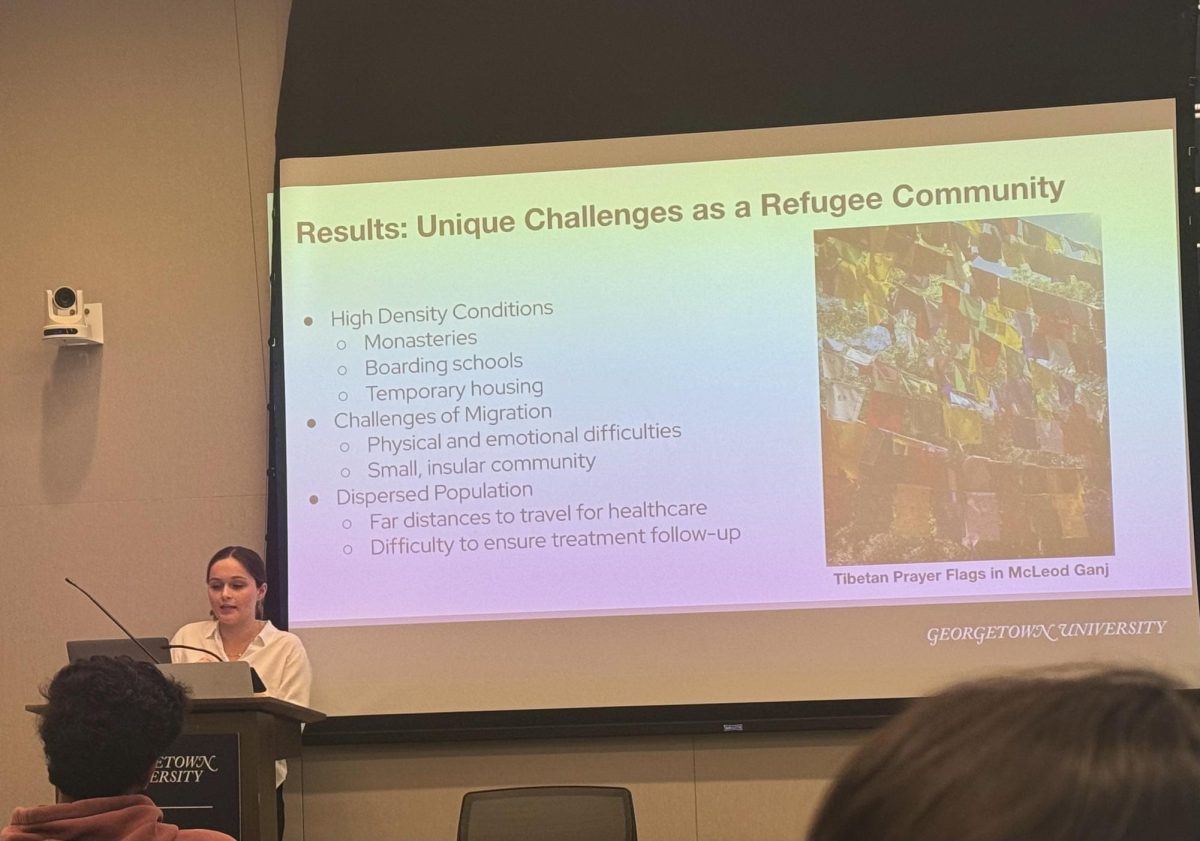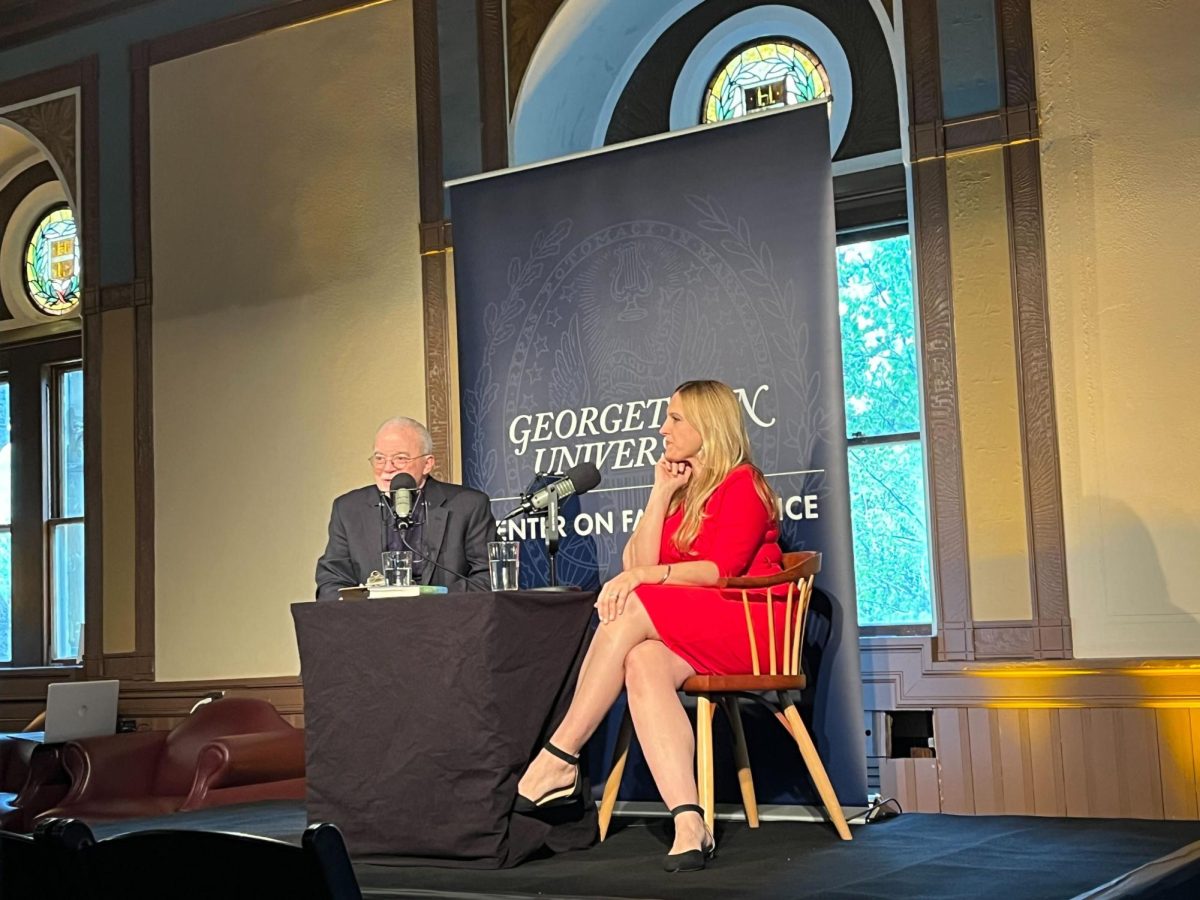During one of my trips to Lauinger Library last week, I noticed something unusual. As I took a seat in one of the wooden cubicles, I saw some words carved deeply into the surface of the desk, one of those permanent etchings that are added to library furnishings year after year, reminders of the travails of Georgetown students before us. What I read was, compared to the other nonsensical inscriptions I had seen, rather surprising: “I miss learning for knowledge, not grades.”
Reading those words made me stop and think for a moment. Apart from the fact that I would never expect to find such thought-provoking rhetoric among the expletives scribbled across library cubicles, something else occurred to me: I kind of missed that, too, but not as much as I did in high school.
As I come to the end of my first semester at Georgetown, I’ve been mostly integrated into the college academic atmosphere. Needless to say, college is a world away from high school. Gone are daily classes, weekly assessments and pointless worksheets. There is, of course, less structure to college. Adjusting to two-hour classes and lecture halls is something that will take time, and whether these aspects of college promote more intellectual stimulation than high school did remains to be seen. But I think that Georgetown gives the promising first impression that all students can find their passion in some activity or class on campus.
But the real measure of an education is tantamount to what someone scribbled onto my cubicle desk at Lau: That is, does the opportunity to learn for knowledge, not grades, exist?
From what I’ve gleaned in my short time here the answer is both yes and no. Yes, college classes are more focused and concept based. The emphasis on memorization is less prominent, and professors are more often concerned with attaining a level of intellectual stimulation than they are with overwhelming students with a litany of obscure facts.
But, at the same time, grades will always matter. Courses that unfairly stress minor details will invariably exist. And that reality is not always a bad thing. In a university where most are naturally curious and academically accomplished, there is good reason to make assessments tougher — but only to a certain extent. I think Georgetown has a healthy balance between traditional classes that include heavy textbook readings and courses that inspire students to explore what they love in less conventional ways. The former are part of any university, and the abundance of the latter determines the intellectual goals and quality of an education.
I think part of the beauty of college is the chance to learn purely for the sake of knowledge, and the more opportunities we have to do so, the better. The environment at Georgetown doesn’t seem overly competitive. It’s an environment that fosters — perhaps even demands — deep intellectual forays and leads students to explore their interests for personal edification. I’m sure there are other perspectives on the university’s intellectual environment, but I think all students can agree that Georgetown has a wealth of opportunities aimed toward stressing how knowledge itself is more important than the attached number or letter.
The student who etched those powerful words onto the desk at Lau was expressing a sentiment that many hold. That student might have just received a reminder of how grades often render the quest for knowledge a shallow pursuit. It’s a system that produces people with a breadth of knowledge but no depth. We end up only scratching the surface and never really penetrating the deeper issues. Luckily, I think I’ve arrived at a university where the deeper questions matter. And as I transition into my second semester, I hope to find more opportunities to gain knowledge in ways that are fruitful beyond the grades I receive.
ROHAN SHETTY is a freshman in the McDonough School of Business.














